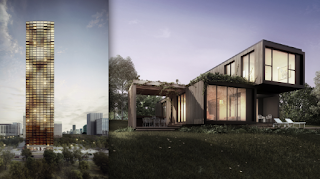PlaygroundIDEAS is a not-for-profit venture that seeks to spread the creation of playgrounds all around the world - particularly in developing countries. PlaygroundIDEAS have facilitated the creation of playgrounds in "many areas in the world where children have suffered torture and trauma as a result of wars, extreme weather and political unrest".
The objectives are to let kids be kids, encourage attendance at schools (they'll go to school if there's a cool playground) and also to assist in broader community development. On top of directly contributing to projects themselves, PlaygroundIDEAS encourages anyone to log on to their website, and download ideas, blueprints, funding guides, and how-to manuals for construction and maintenance so communities can build their own playgrounds with locally sourced materials.
Why are playgrounds important? Because kids gotta play.
This is increasingly being recognised by policy makers- the American Academy of Pediatrics recommends a minimum of one hour a day of open ended play. The Australian Government also recommends a minimum of one hour a day (and preferably several hours) of physical activity for children to maintain their good health.
It's not just the physical aspect of play that is important for kids, it's also necessary for psychological health, and has social and cognitive benefits. Dr. Evan Kidd of the Australian National University explains that:
For more info on PlaygroundIDEAS, click here.
The objectives are to let kids be kids, encourage attendance at schools (they'll go to school if there's a cool playground) and also to assist in broader community development. On top of directly contributing to projects themselves, PlaygroundIDEAS encourages anyone to log on to their website, and download ideas, blueprints, funding guides, and how-to manuals for construction and maintenance so communities can build their own playgrounds with locally sourced materials.
Why are playgrounds important? Because kids gotta play.
It's not just the physical aspect of play that is important for kids, it's also necessary for psychological health, and has social and cognitive benefits. Dr. Evan Kidd of the Australian National University explains that:
Play is an excellent context in which children learn important social skills, such as peer interaction. When children have ‘play-dates’ they aren’t just having fun, they’re learning important socialising skills such as turn-taking in conversation, negotiation, and conflict resolution. No wonder play has been linked to important skills such as understanding other people’s thoughts and feelings, as well as children’s language development. Finally, play seems to be an important medium through which children can begin their long journey through formal education. Studies have shown that children who attend schools that have a play-based curriculum not only learn well, but enjoy learning too.
For more info on PlaygroundIDEAS, click here.
Read the article by Dr. Evan Kidd (ANU) on the importance of play here.
Click here for an interesting presentation by Rachel Carlisle (heart foundation) on the importance of active play in an Australian context.













